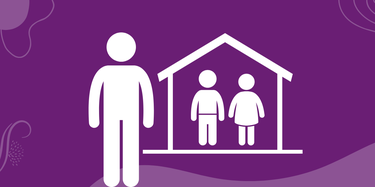HOW TO SUPPORT A CHILD IF YOU LEAVE HOME
Follow these useful tips about talking to your child to reassure them in the situation of leaving home.
Talking to Your Child
Safety is the most important thing. Explain to your child that the most important thing is your family’s safety, so you are traveling to a safe place together. In this new place, they will meet good people. There are more good people than bad people in this world. You will live in temporary housing, but one day, if it is safe, you will return home.
Be prepared for your child to react with tears or tantrums. Acknowledge your child’s emotions and be patient and empathetic. Explain that you are also sad, but that now you need the help of your little hero or heroine. Emphasize that you will cope with problems together. Tell your child that you love her/him.
For children with disability, the uncertainties associated with leaving home may be even more concerning due to fear of inaccessibility, stigma, and communication barriers. Ensure to listen to their concerns.
Are we gone forever?
I don't know for sure, but we must stay until it’s safe.
Where will we live?
Tell the details that you know. Explain if you will live with other people or not. If you have a photo of the city/property, show it.
I will miss my friends.
It is natural to miss friends and other loved ones, and to feel sad about this. We can call or write to them. In our new location, we will work hard to make new friends, while also staying connected to our old friends. I’m here to talk whenever you feel sad.
I am worried about my father, who remains in Ukraine.
I can understand that you feel worried – that’s natural. Your father will do everything to be together as soon as possible. He loves you and wherever you go, his love travels with you and your love travels with him.
Will I be able to move around and play with other kids?
You may not know. Tell them you will do your best to find an accessible place and ensure other children are around.
How Else Can I Help My Child?

See 15 SAFETY RULES FOR TRAVELING ABROAD WITH CHILDREN for more information about staying safe when traveling abroad with children.



